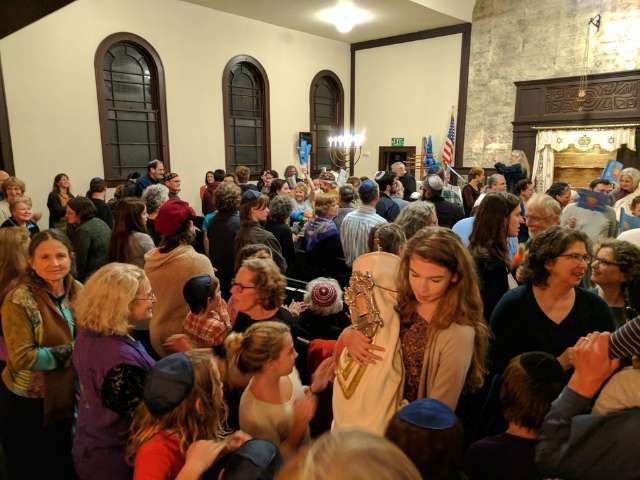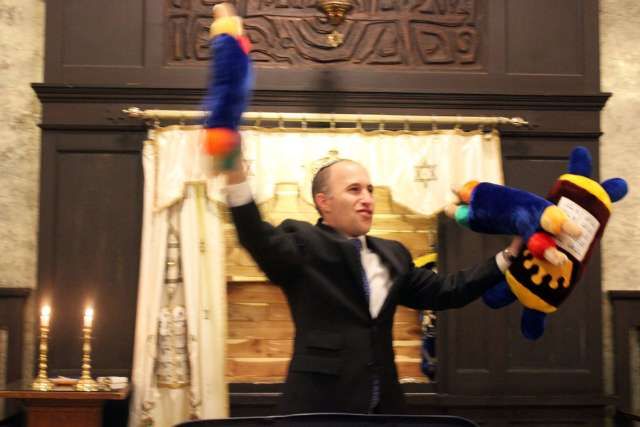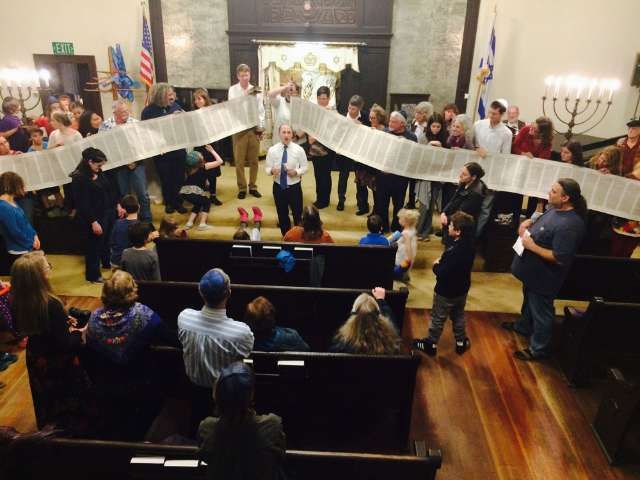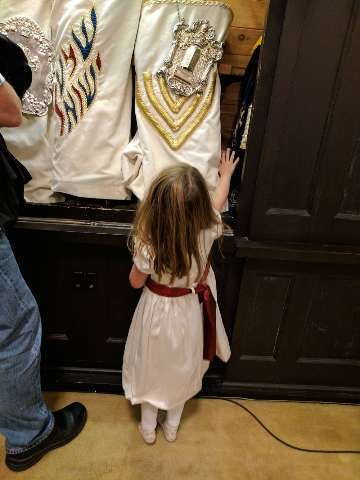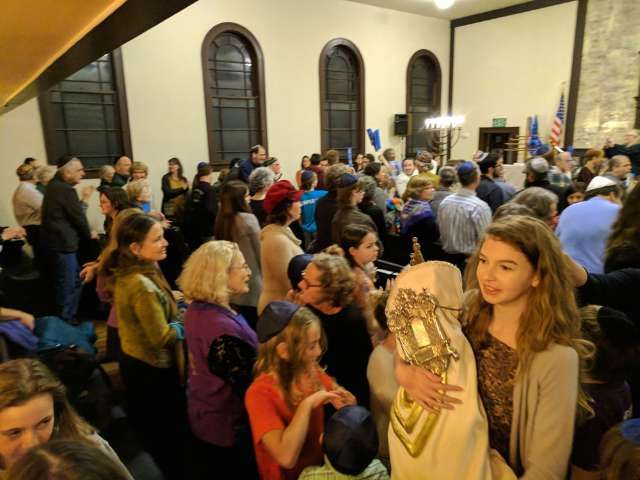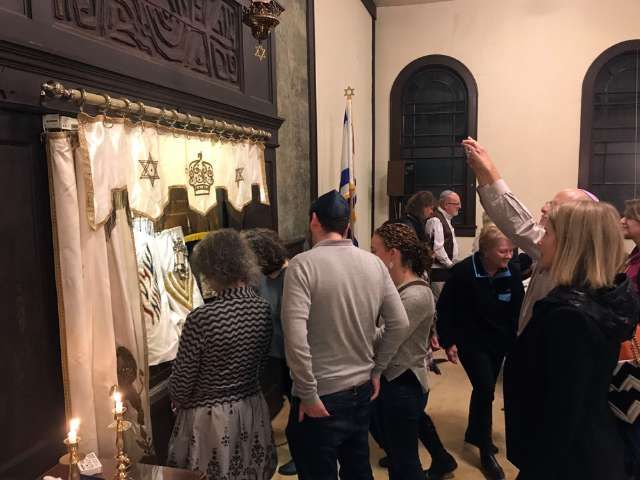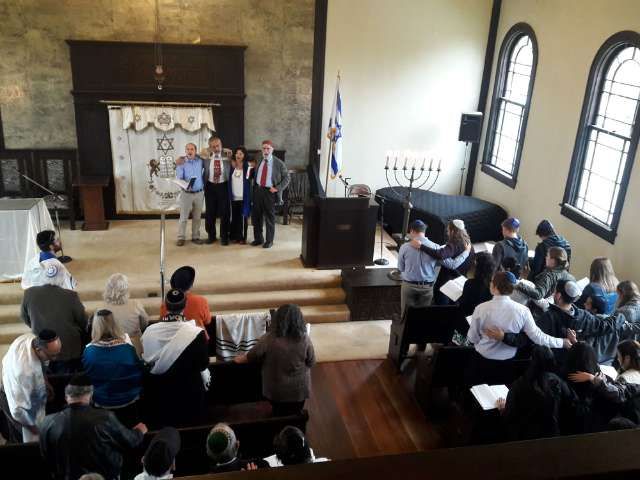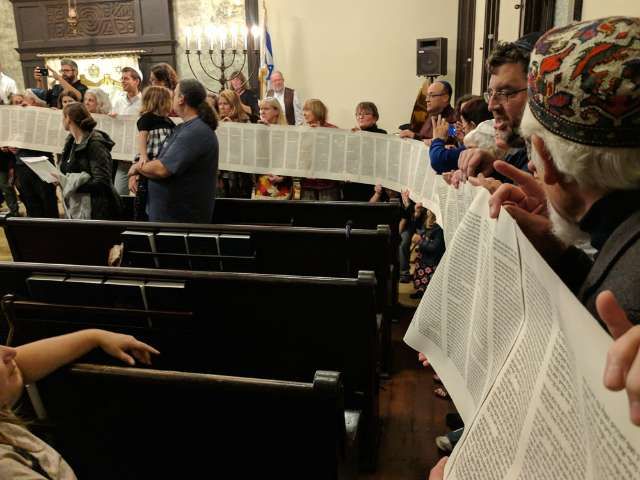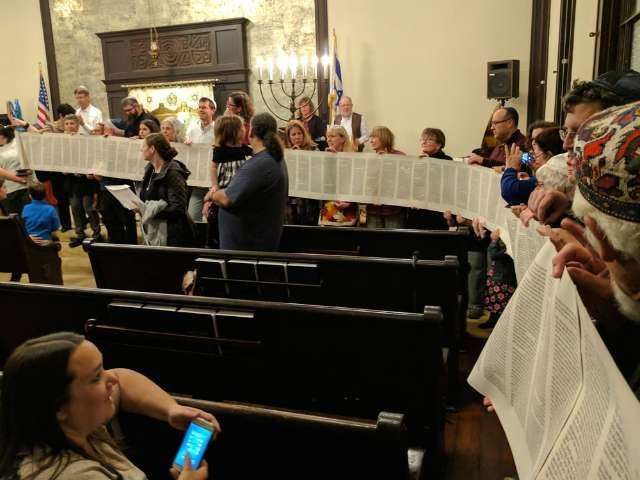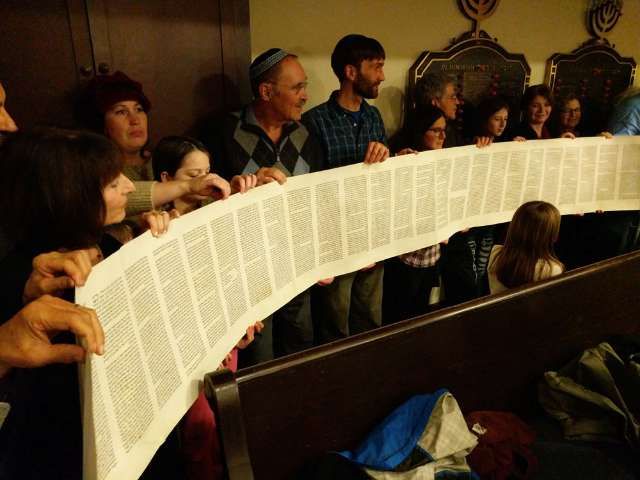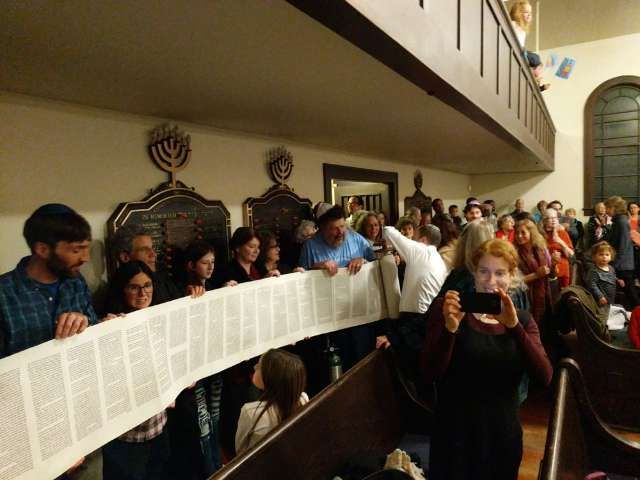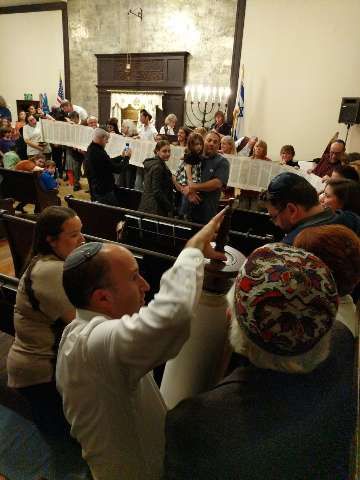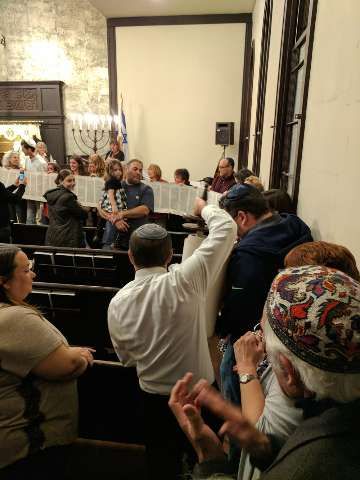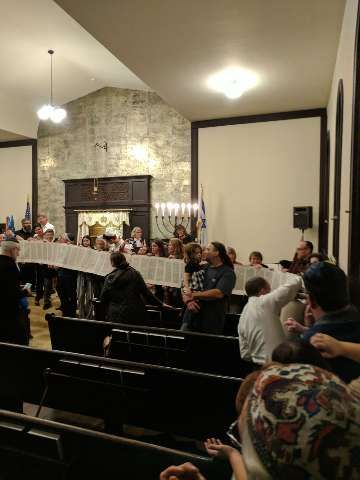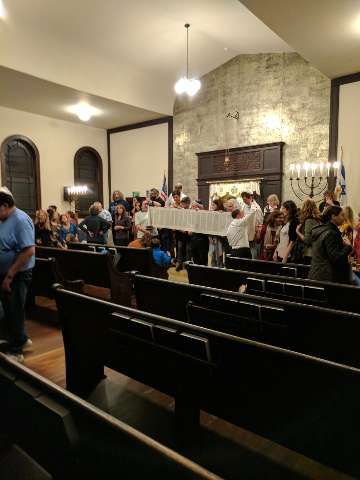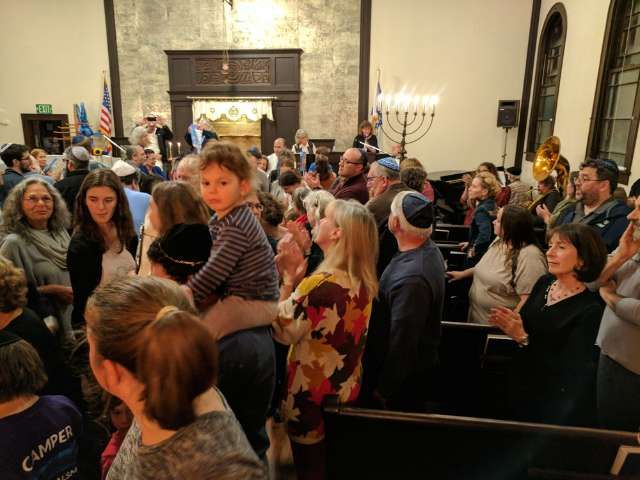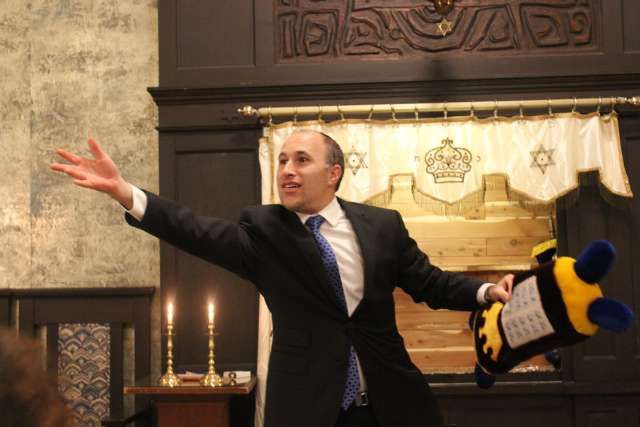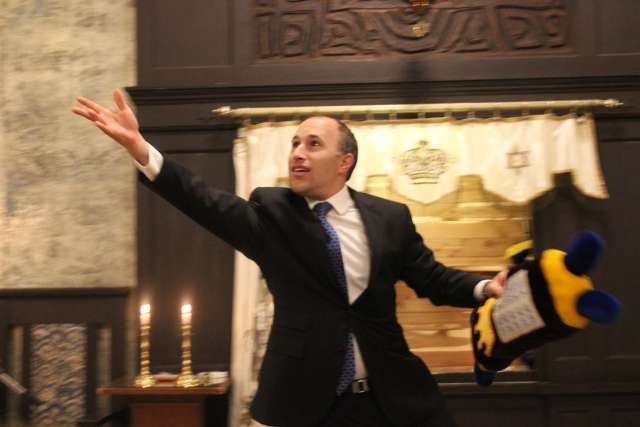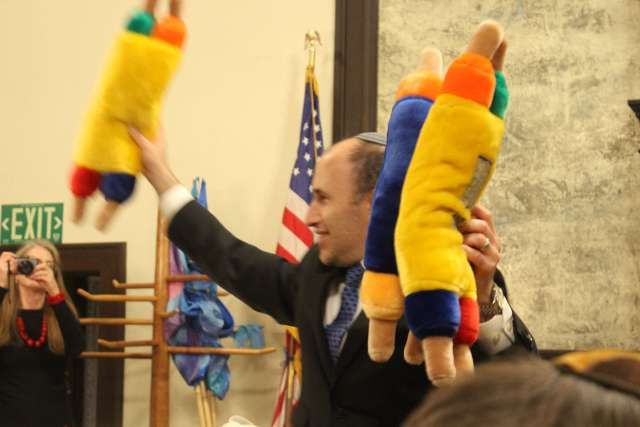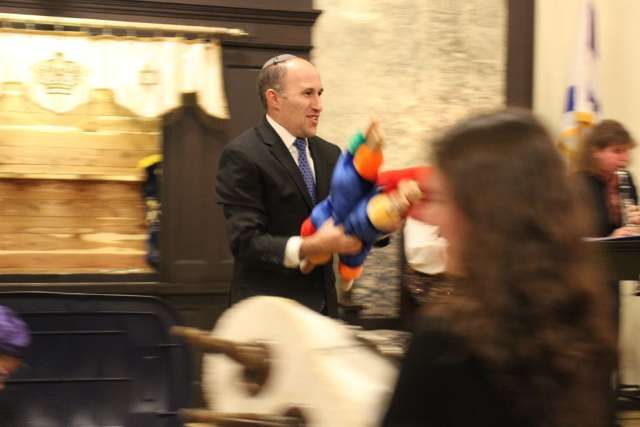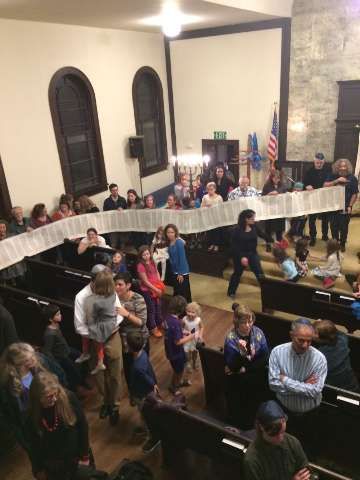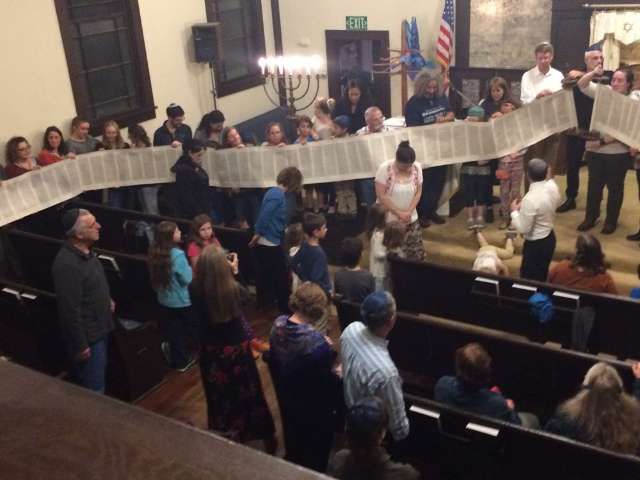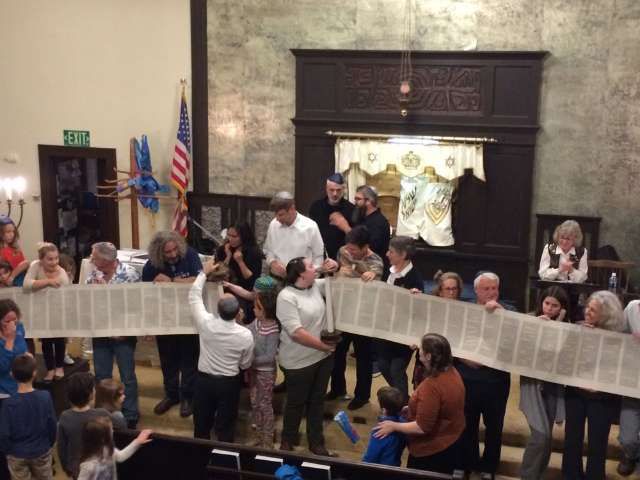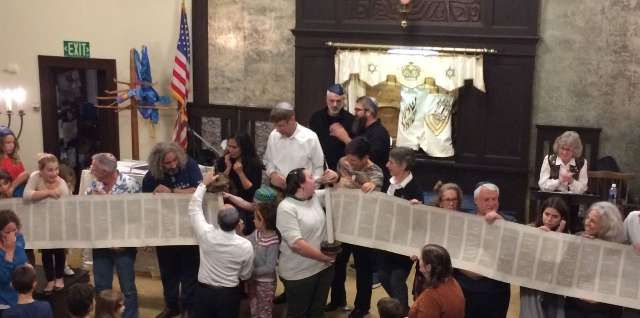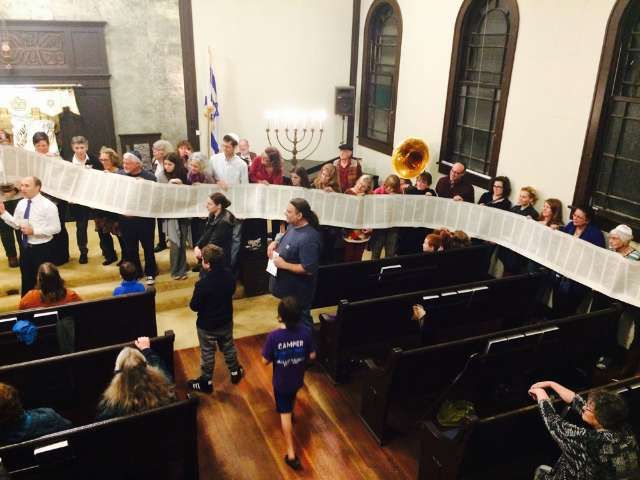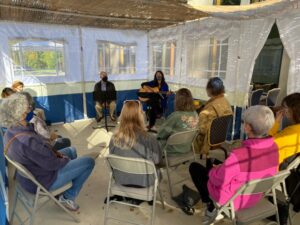Purim is celebrated by the reading of the Scroll of Esther, known in Hebrew as the Megillat Esther, which relates the basic story of Purim. Under the rule of King Ahashuerus, Haman, the King’s prime minister, plots to exterminate all of the Jews of Persia. His plan is foiled by Queen Esther and her cousin Mordechai, who ultimately save the Jews of the land from destruction. The reading of the megillah is typically a rowdy affair, punctuated by booing and noise-making when Haman’s name is read aloud.
Holidays
Shavuot is a Hebrew word meaning weeks
Shavuot is a Hebrew word meaning “weeks” and refers to the Jewish festival marking the giving of the Torah at Mount Sinai. Shavuot, like so many other Jewish holidays began as an ancient agricultural festival, marking the end of the spring barley harvest and the beginning of the summer wheat harvest. Shavuot was distinguished in ancient times by bringing crop offerings to the Temple in Jerusalem.
Hanukkah, meaning dedication in Hebrew
Chanukah, meaning “dedication” in Hebrew, refers to the joyous eight-day celebration during which Jews commemorate the victory of the Macabees over the armies of Syria in 165 B.C.E. and the subsequent liberation and “re-dedication” of the Temple in Jerusalem. The modern home celebration of Chanukah centers around the lighting of the chanukiah, a special menorah for Chanukah; unique foods, latkes and jelly doughnuts; and special songs and games.
Sukkot, a Hebrew word meaning booths or huts
Sukkot, a Hebrew word meaning “booths” or “huts,” refers to the Jewish festival of giving thanks for the fall harvest, as well as the commemoration of the forty years of Jewish wandering in the desert after Sinai. Sukkot is celebrated five days after Yom Kippur on the 15th of Tishrei and is marked by several distinct traditions. One tradition, which takes the commandment to “dwell in booths” literally, is to build a sukkah, a booth or hut. A sukkah is often erected by Jews during this festival, and it is common practice for some to eat and even live in these temporary dwellings during Sukkot. Read more about the history and customs of Sukkot.
Shavuot
Shavuot
Simchat Torah
Simchat Torah
Purim 2025
Carnival: Sunday, March 16, 2025 • Noon – 2 p.m.
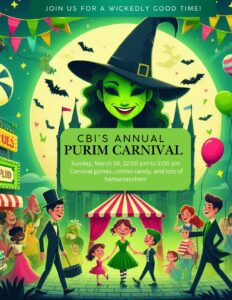 Please join us for CBI’s Annual Purim Carnival!
Please join us for CBI’s Annual Purim Carnival!
Wear your best costume and enjoy face painting, a costume contest, carnival games and a variety of delicious foods.
Purchase your Purim Family Discount Card or individual tickets here. Cards include pizza, 1 salad, 4 drinks, and 40 tickets for games, snacks and activities.
A Wicked, Wicked Spiel!
Thursday
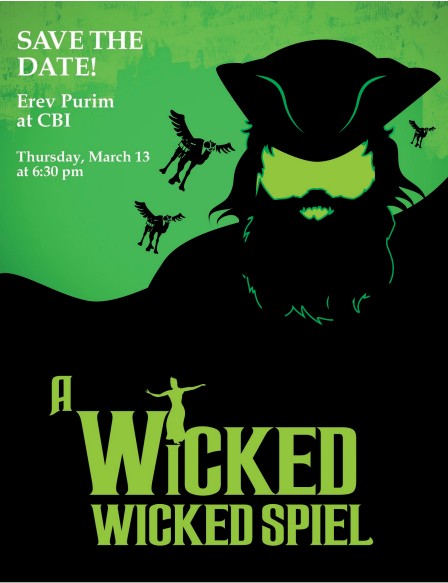
Simchat Torah
The Reform Movement is offering this Simchat Torah event that can be viewed at your leisure:
Our last Simchat Torah at 2200 Broadway
Sukkot
Sukkot, a Hebrew word meaning “booths” or “huts,” refers to the Jewish festival of giving thanks for the fall harvest, as well as the commemoration of the forty years of Jewish wandering in the desert after Sinai. Sukkot is celebrated five days after Yom Kippur on the 15th of Tishrei and is marked by several distinct traditions. One tradition, which takes the commandment to “dwell in booths” literally, is to build a sukkah, a booth or hut. A sukkah is often erected by Jews during this festival, and it is common practice for some to eat and even live in these temporary dwellings during Sukkot.
Sukkot 2021
Celebrating in our sukkah Sept. 2021:
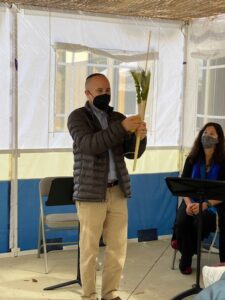
Holidays
Jewish Holidays

